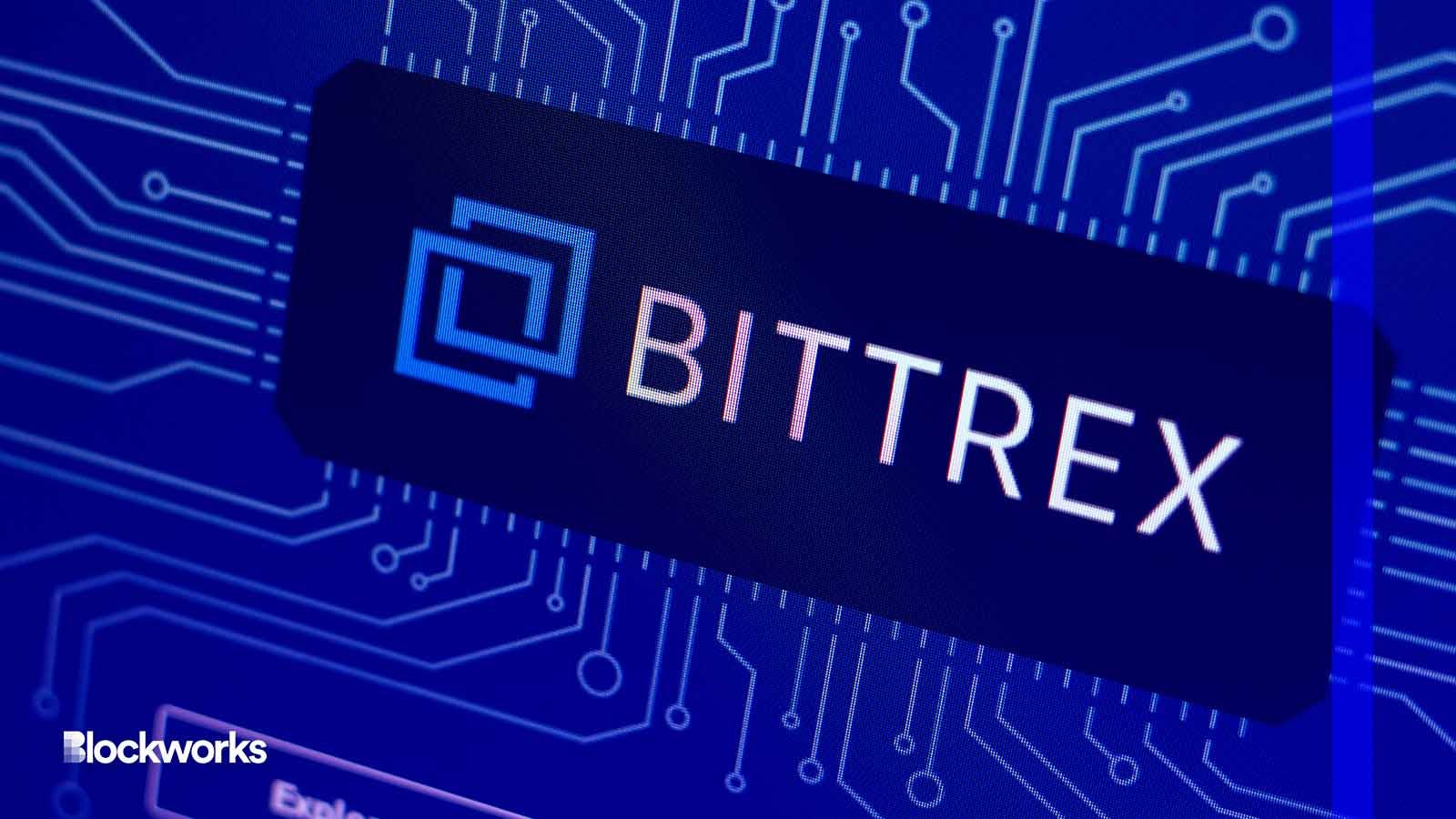Bittrex mimics Coinbase, argues SEC lacks authority to apply securities laws to crypto
Bittrex says the SEC lacks “clear congressional authorization” required to apply securities laws to tokens

Sharaf Maksumov/Shuttertock modified by Blockworks
Bittrex is seeking to dismiss SEC charges alleging that the now-shuttered exchange listed unregistered securities on its platform.
“The SEC lacks the ‘clear congressional authorization’ required to apply the securities laws to tokens,” Bittrex argued.
Earlier this year, Bittrex US shut down its operations and filed for bankruptcy following a lawsuit from the US regulator.
Oliver Linch, CEO of Bittrex Global — which operates as a separate company from Bittrex US, and was also targeted by the SEC — previously told Blockworks that Bittrex “never got a chance to respond.”
The former exchange claims that the SEC filed its complaint — following a six-year investigation — while it was winding down US operations, stating that Bittrex had operated as an unregistered securities exchange, broker-dealer and clearing agency.
“The Commission is still missing essential elements of its claims. And those claims exceed its authority and defy key securities-laws precedents. This is inexcusable. When the government brings an enforcement action, especially after a prolonged investigation, it should adhere rigorously to the pleading standards and relevant statutory constraints. The SEC failed to do so here,” Bittrex said in its filing.
Bittrex’s argument is very similar to the one Coinbase used last week in response to its lawsuit from the regulator.
Coinbase claimed that only Congress can decide how to regulate crypto and agencies such as the SEC “may not seize power for themselves.”
In its complaint against Bittrex, the SEC alleged that six tokens fall under the current definition of investment contracts.
Bittrex pushed back against the claim, saying that there is a legal precedent of courts deciding that some tokens did constitute investment contracts. The cases that they say set these precedents involved the offering’s developers and not the platforms that made the tokens available through secondary market trading “with zero contractual or other connection between the token purchaser and token developer.”
Bittrex argues that the distinction is “critical” because the allegations are focused on the transactions “by which the tokens were first issued by the developer” and not the “subsequent transactions” on Bittrex US.
In another similarity to Coinbase, Bittrex also argued the lack of clarity on which tokens constitute a security in the SEC’s eyes.
The SEC’s regulation through enforcement leaves Bittrex — and other crypto companies — in limbo as they try to “guess” which tokens might be considered securities. Bittrex notes that this was specifically painful because of the number of tokens that were listed on its platform. It says that “participants in the crypto industry and many others beyond have pleaded with the SEC to provide some measure of clarity about this issue.”
Both CFTC Chair Rostin Behnam and former SEC Chair Jay Clayton have taken aim at regulation by enforcement, with Behnam saying it’s unsustainable.
“The Commission’s apparently strategic decision to provide no meaningful public guidance about which tokens are subject to regulation as securities—particularly in secondary-market transactions—before mounting enforcement actions against supposed violators amounts to a denial of due process,” lawyers for the former exchange claim.
Get the news in your inbox. Explore Blockworks newsletters:
- The Breakdown: Decoding crypto and the markets. Daily.
- 0xResearch: Alpha in your inbox. Think like an analyst.






